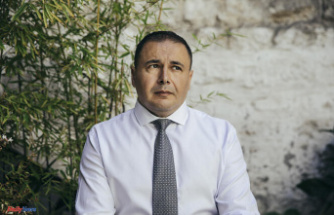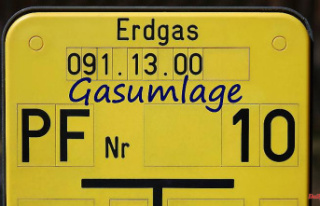In view of the high energy prices, saving elsewhere is all the more worthwhile. A look at the household book shows that just changing insurance companies can amount to almost 170 euros per year.
In everyday life, many things become more expensive. Some of the items are difficult to save on. But there are definitely savings options that will save a few euros in the crisis. The tip from the debt counseling service: Only long-term changes can actually help to avoid slipping into the debt trap unintentionally.
Tip 1: Bike or carpool instead of your own car
According to the Federal Working Group for Debt Counseling, there is the greatest potential for savings in the area of mobility. The car, for example, burdens the account considerably more than might be expected at first glance. A bicycle initially costs money to buy, but saves a lot in maintenance. For short distances - according to the debt counseling service, these are a maximum of eight kilometers, which are otherwise covered by car to work - the difference in time is hardly noticeable.
If you can't do without the car completely, you can think about car sharing. But carpooling also saved costs for train tickets, fuel and rental cars. Sharing a car with neighbors can also be an option.
Tip 2: Check energy contracts
A comparison can be worthwhile for electricity and gas contracts. Even if not much savings are possible, according to Roland Stecher from the Bremen consumer advice center, the basic supply tariff can be the cheaper alternative in some regions.
His advice: These are not displayed in some comparison portals. It is therefore best to take a look at the website of the basic supplier. According to the consumer advice center, anyone who has not yet received a price increase and has a cheap contract should stick to their existing tariff for the time being. However, there is no guarantee that the change will succeed, according to Stecher. Because many suppliers would have imposed an application freeze. In any case, new contracts are usually more expensive than existing contracts.
Tip 3: Telephone and mobile communications
A few extra euros are also hidden here. According to the telecommunications portal Teltarif.de, there are three items where money can be saved. Do not conclude any new contracts or contract extensions with (again) a minimum term of 24 months. This is the case, for example, when the customer wants a supposedly cheap contract cell phone. Because providers then get in touch shortly before the previous contract expires and offer a new extension for a further 24 months. This is then attached to an ongoing contract. So it's not unrealistic to be tied down for the next 30 months.
Beware of entry-level mobile phone contracts, these could be very expensive. Teltarif spokesman Henning Gajek calculates it using an example: A tariff costs 35 euros per month with five gigabytes (GB) of data volume. You can just as well conclude a prepaid contract, which also offers five GB and costs only 14.95 euros. The advantage: it can be canceled at any time by simply not loading the card anymore. Alternatively, discount providers with tariffs under ten euros could also be a cheap option if the network quality is not crucial.
Saving on the fixed network: Because the fixed network connection is usually only available in combination with the home Internet connection, the costs for it depend on the maximum data speed. Not suitable for working from home or for gamers, but for those who only use the Internet a little at home: Throttling the data speed to 16 megabits per second is sufficient for singles according to the Teltarif.
Tip 4: Switch checking accounts and credit cards
According to the consumer portal Finanztip, consumers should consider switching as soon as fees for the current account are incurred. The checking account calculator can provide an overview. It can also be worth switching to an online account or direct bank. The comparison overview from Finanztip helps with the selection.
But not only the current account should be checked critically. You don't have to pay any fees for the credit card either. There are free offers on the market. According to the financial test, this saves around 100 euros per year.
According to Sally Peters from the Hamburg Institute for Financial Services (IFF), it is helpful to pay more in cash to keep an eye on your costs. It is best to only make a certain amount available to yourself before you go shopping, which must not be exceeded.
Tip 5: Installment credit instead of an overdraft
The interest rates for overdraft facilities are high and put a strain on the budget. An alternative can be cheaper installment loans. This way the account is not overdrawn and you can get out of the red faster. The consumer advice center Bremen recommends comparing the conditions. Expensive and often superfluous residual debt insurance increases the monthly rate unnecessarily. The alternative: ask for a family loan.
Tip 6: Adjust the savings rate
With an ETF savings plan, it's easy: savers can lower their monthly payments at any time or suspend them entirely. Because if the money just lasts until the end of the month, you can no longer save as much. With other savings products, it is often also possible to adjust the savings rate. According to Sally Peters, you should contact the provider for this.
Tip 7: Make your old-age provision free of contributions for a limited period of time
The same applies to old-age provision as to all other savings products: termination is always the worst option. Rather contact the provider and find alternative solutions. With many pension products, you can be temporarily free of contributions or defer the contributions. Roland Stecher from the consumer advice center in Bremen urgently recommends a consultation to discuss all the options and consequences.
Tip 8: Check insurance
Lots of euros given away are often hidden in the "Insurance" item. According to Philipp Opfermann from the consumer advice center in North Rhine-Westphalia, you can save money on car insurance, for example. For example: The car is getting on in years and you can already do without comprehensive insurance. Liability and partial insurance are significantly cheaper for the insured. If you also switch from monthly or quarterly payment to annual payment, you can save more euros.
Anyone who finds other old insurance policies can also make adjustments here. Take luggage insurance, for example, which is the result of a trip booked online years ago. Without them, you can potentially save more than 100 euros per year.
And when it comes to liability insurance, Opfermann recommends taking a look at the numbers. According to his calculations, those who browse through comparison portals and find cheaper providers can save around 40 euros.
(This article was first published on Monday, August 15, 2022.)












